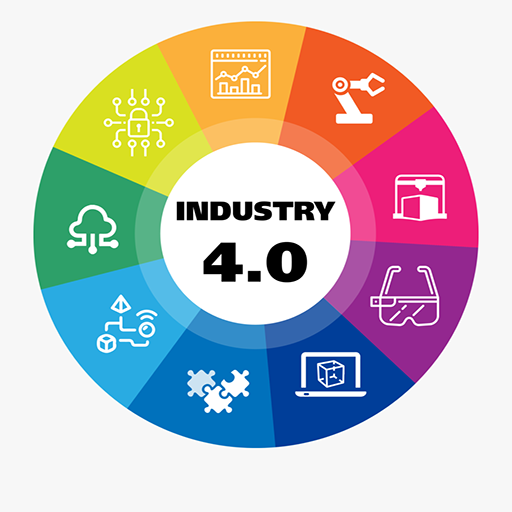Implementasi Sistem Informasi Pendidikan Muhammadiyah (Sidikmu) Dalam Layanan Administrasi Sistem Pe Nilaian Al Islam, Kemuhammadiyahan Dan Bahasa Arab (Ismuba) Pada Era Industri 4.0 Di Sekolah Dasar Muhammadiyah 1 Krian, Sidoarjo
Abstract
The development of the world of technology cannot be avoided, educational institutions as centers of education and learning must follow these technological developments so that they can exist more. In the industrial era 4.0 which was marked by advances in information and communication technology, accelerating and providing various kinds of convenience in accessing information and data on various aspects of life. This acceleration and convenience has become a necessity and a lifestyle. Therefore, schools as educational institutions that have various kinds of data must be willing to make changes, adjust to these demands, so that the education and learning process can take place properly, quickly, and accurately. Schools must take advantage of information and communication technology. Carry out the education and learning process online. Consequently, it must have facilities and infrastructure, in the form of information and communication technology. However, the reality in the field is that not all schools have and apply this technology, due to various limitations, financial and workforce quality. The problem then is, is this true, information and communication technology is a major need, without this technology learning cannot take place optimally, the continuity of the institution and its existence is threatened. From here the researcher was moved to research on the implementation of information systems online. Aims to find out and understand the effectiveness of online information system implementation in Era 4.0 as a database and educational information service center at the Krian 1 Muhammadiyah Primary School.
This type of qualitative research uses a phenomenological approach (field research). This study used data collection techniques in the form of observation, interviews, and documents. The collected data were analyzed through 3 stages, namely data collection, data reduction, data presentation, and conclusion drawing. To check the validity of the data, triangulation was used.
The results obtained from this study are the implementation of the Muhammadiyah Education Information System (Sidikmu) in the administrative services of the Al Islam, Kemuhammadiyahan, and Arabic education assessment system in the Industrial era 4.0 at SD Muhammadiyah 1 Krian Sioarjo implemented in integral automation. An information system that not only functions as a database but also as a center for educational information services for student guardians. So that educational institutions can move according to the era which is completely online and instant. Sidikmu is effective and efficient in improving the quality and productivity of the ISMUBA education assessment system administration services at SD Muhamadiyah 1 Krian, Sidoarjo. The effectiveness and efficiency of Sidikmu's work automatically integrate all existing data in schools, making it easier for the administrative process for assessments, especially on ISMUBA subjects. The main obstacle is that not all Ismuba teachers master the technology, so training is needed, the provision of facilities, and guaranteed awards for Creative and Innovative Ismuba teachers
References
Isa Anshori & Suwidiyanti, Improvement of Mathematics Teacher Performance ThroughAcademic Supervision With Collaborative Approaches.IJERE: International Journal of Educational Research Review, 5 (3), July 2020, Pages: 227, DOI: 10.24331/ijere.735935
Kemenag, (2002), Al Qura’an, 88:17-5.
Afandi & Sajidan. Stimulasi Keterampilan Tingkat Tinggi. (Surakarta: UNSPRESS, 2017), 6.
Kasali, R. Disruption (9th ed.). (Jakarta: Gramedia, 2018), 74.
Eko Risdianto. Analisis Pendidikan Indonesia di Era Revolusi Industri 4.0. (https://www.academia.edu/38353914/Analisis_Pendidikan_Indonesia_di_Era_Rev olusi_Industri_4.0.pdf, diakses tanggal 22 Nopember, 2019), 3.
Isa Anshori, Penerapan Nilai Budaya Kerja: Peluang dan Tantangan bagi peningkatan Kinerja Madrasah, Cendekia: Jurnal Pendidikan dan Humaniora, 2 (3), Juli- Desember 2018), hal 192-201.
Isa Anshori, Perilaku Memilih Lembaga Pendidikan: Perspektif Teori Rational Choice dan Bonded rational, Prosiding Seminar Nasional Pendidikan: Thema “Desain Pembelajaran di Era Asean Economic Community (AEC) untuk Pendidikan Indonesia Berkemajuan,” (Sidoarjo: Fakultas Keguruan dan Ilmu Pendidikan Universitas Muhammadiyah Sidoarjo, 2017), 136-160.
Ramayulis, Ilmu Pendidikan Islam, (Jakarta: Kalam Mulia, 2008), 274.
Andi teca, Manajemen Unik, (Yogyakarta: Titah Surga, 2016), 13.
Isa Anshori, Melacak State of Thi Arth Fenomenologi dalam Kajian Ilmu Sosial, (Halaqa: Islamic Educational Journal, 2 (2), 2018), 165.
Musfiqon H. M., Panduan Lengkap Metodologi Penelitian Pendidikan (Jakarta: Prestasi Pustaka, 2012), 71.
Sugiyono, Metode Penelitian Kuantitatif, Kualitatif, dan R&D, (Bandung: Al Fabeta, 2014), 215.
Ahmadi Rulam, Metodologi Penelitian Kualitatif, (Yogyakarta:Ar-Ruzz Media, 2016), 179.

In submitting the manuscript to the International Journal on Integrated Education (IJIE), the authors certify that:
- They are authorized by their co-authors to enter into these arrangements.
- The work described has not been formally published before, except in the form of an abstract or as part of a published lecture, review, thesis, or overlay journal.
- That it is not under consideration for publication elsewhere,
- The publication has been approved by the author(s) and by responsible authorities – tacitly or explicitly – of the institutes where the work has been carried out.
- They secure the right to reproduce any material that has already been published or copyrighted elsewhere.
- They agree to the following license and copyright agreement.
License and Copyright Agreement
Authors who publish with International Journal on Integrated Education (IJIE) agree to the following terms:
Authors retain copyright and grant the International Journal on Integrated Education (IJIE) right of first publication with the work simultaneously licensed under Creative Commons Attribution License (CC BY 4.0) that allows others to share the work with an acknowledgment of the work's authorship and initial publication in this journal.





1.png)
